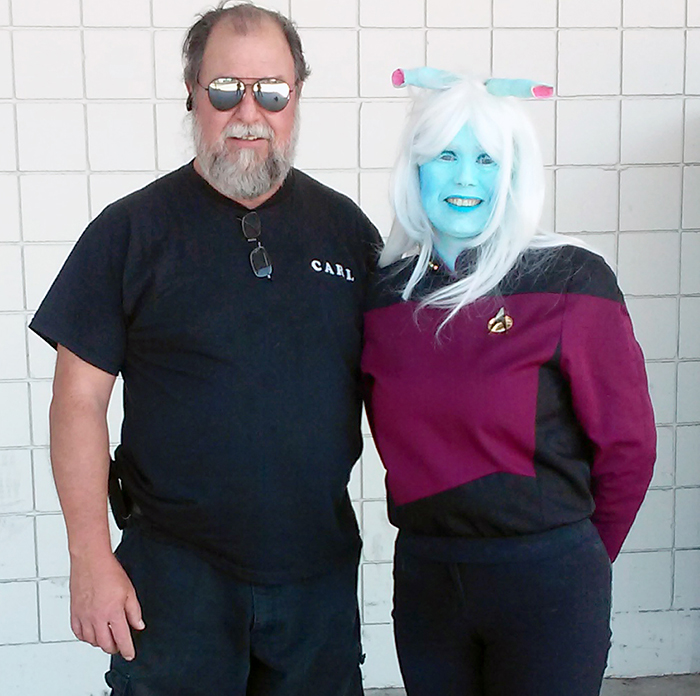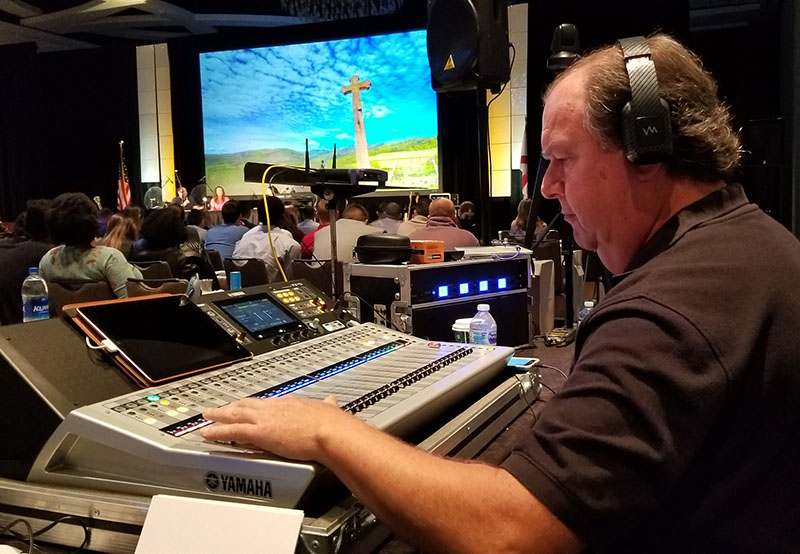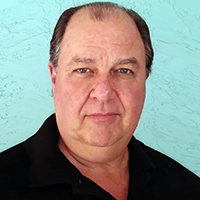One reason why I like living in the “mouse house” (Orlando) is because the work comes to me. I got a bellyful of touring back in the early 80s as a keyboard player and vocalist for a 25-piece show band that toured worldwide. I made it to the top in the entertainment world only to discover that it just wasn’t my cup of tea. It felt like just another job.
Lying in a hospital somewhere in Illinois because of pneumonia resulting from sheer exhaustion, I was asking myself, “Why am I doing this?” I couldn’t come up with an answer, so I knew it was time to do something else.
The first of my three college degrees was in music, which was my first love. I wouldn’t trade anything for my days as a college music major. As an audio engineer, I can still be involved with music and musicians, which is a blessing on most days; a real challenge on others.
If you work with musicians, you know exactly what I’m talking about. We’re maladjusted, and I think the reason is because we spend so much time in isolation, practicing and perhaps writing. We’re never properly socialized, often socially awkward. The irony is that we can be so comfortable onstage. I’ve actually made conscious efforts to learn how to relate to people and be social.
Most of the audio engineers I know personally or that I read about are musicians. Some of us are frustrated because we could never make a living as a musician; others, like myself, have been there, done that. An upside is that my experience enables me to speak fluent “musician” and put musicians in their place when they peg my hogwash-ometer.
I don’t work as much with musicians these days unless they’re the live entertainment for the corporate events that I do. Sometimes the client companies hire local or regional bands for live entertainment, and some of them can even afford to hire headliners for private concerts. They usually have their own audio engineers, and for good reasons.
Meeting Expectations
Make no mistake: the clients with large general sessions want the audio to be every bit as good as the headliners get – the same line arrays, front fills, subwoofers, stage monitors, and so forth. One significant difference is that they don’t need a monitor engineer because there’s usually only one or two monitor sends to the stage. There are sends to other destinations, of course – live streaming, recording, pre-function area, greenroom, backstage production personnel… it can add up to a number of different sends, but it’s normally a “set it and forget it” scenario, with all of the sends being post fader.
I work as an A1, A2, and audio technician, and occasionally as an audio stagehand – and when I do, I avoid making any claims of being anything else. From time to time, I fill in with in-house AV companies when they need extra techs and engineers for breakout rooms.

Out-of-town companies are often pleasantly surprised at the wealth of knowledge and experience that we locals bring, and how efficiently we work, especially in a right-to-work state. We check our egos at the door and we “git ‘er done.” There are some exceptions, of course, but by and large, most of us have the right attitude and skillset to make things go smoothly and quickly.
A typical gig begins with an 8 am call, which means an arrival time between 7:30 and 7:45 am. I greet the familiar faces and look forward to another day in paradise. At precisely 8 am, the producer or tech director calls us together and we meet our crew leads. This is where I’m introduced to the A1 and A2 if I haven’t worked with them before. Then it’s all-hands-on-deck at the loading dock to unload the trucks and get the gear in the room(s).















